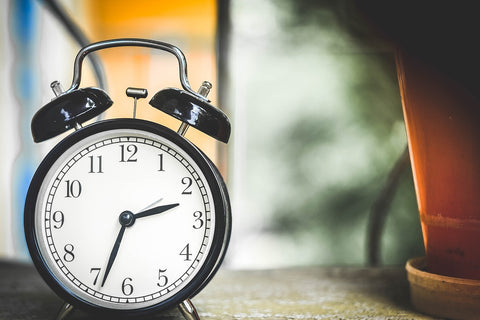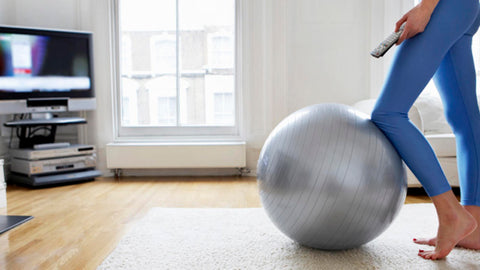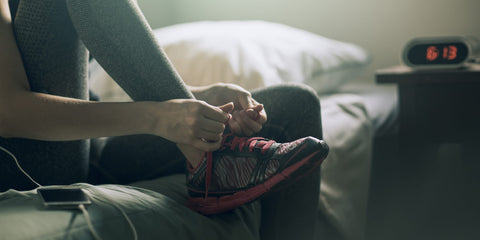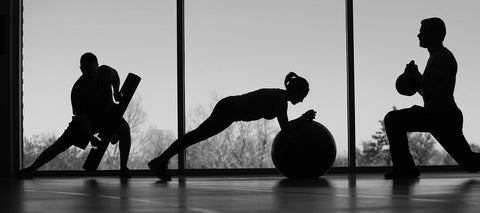Best Time to Exercise During Ramadan by Dietitian and Personal Trainer Baraa El Sabbagh
Oct 12, 2021

Are you still trying to decide whether you should workout during Ramadan? Or have you decided that you are going to workout but trying to decide what time you should train?
I'm ready to help you! I will share with you the pros and cons of 4 different times that you can be working out in Ramadan.
If you would like to listen to a few interviews on the podcast that I had with other experts in the field on how to stay healthy in Ramadan, make sure to download and listen here:
Episode 67: Eating Right & Working Out in Ramadan
Episode 21: Healthy Ramadan Tips with Rola Ghaddar
Episode 22: Exercise During Ramadan
Alright, before we get to the pros and cons of the times to exercise in Ramadan, there are 4 important pillars you should keep in mind to feel fantastic throughout the whole month:
4 Important Pillars to Feel Amazing during Ramadan

- Sleep: I know the non-fasting hours can be short, which make you feel like you want to stay up all night. But this can affect your hormones negatively making you more tired the next day, low on energy, hungry and it definitely makes the weight loss process harder. So try to sleep early and take naps when you can to get your 7-8 hours of sleep per night.
- Water: If you go on dehydrated, one day after the other, you’ll reach the end of the month feeling very tired and low in energy. Aim to drink 2 liters of water, which is equal to 8 cups. Make a schedule to drink 2 glasses every hour to reach your goal.
- Protein: People tend to neglect their protein needs and instead of focus on the soup, appetizers and sweets. But since there are only 2 main meals in Ramadan, this will make it difficult for you to reach your protein needs and maintain your muscle mass for the month. The key here is to go for protein at every meal before you get full. You can also make your snacks protein-rich to help you reach your goal: yogurt, milk and natural protein shakes are all great sources of protein.
- Total Calorie Intake: Whether you want to lose weight, maintain or gain weight, your calorie intake throughout the evening matters. Check in with your dietitian and see how your eating can be affecting your weight during this month.
While keeping these 4 pillars in mind, let's dig deep to find out when you should exercise in Ramadan!
1. After Iftar

This is the best option for those wanting to see progress in performance. After iftar, you get the hydration and the fuel that you will need during your exercise session. Being fuelled with water and food helps you reach optimal performance without the risk of dizziness, fatigue or low energy during training.
Pros:
- More likely to reach full power during training
- Well hydrated and fed
- More likely to lift heavier
- More likely to progress in performance
- Can try something new as you are well hydrated and fuelled
- Can contribute positively towards weight loss
- Can contribute positively towards staying fit during the month
Cons:
- Have to wait at least 1 hour after having a light snack
- Have to wait at least 2 hours if you eat a full meal
- Might be training at a late hour during the night which can disrupt sleep depending on the country you live in
2. Before Iftar

This is the second best option for those wanting to stay fit, it would be working out 1-2 hours before breaking your fast. I know this is a favourite time for people to exercise in Ramadan. This time allows people to pass time before iftar, helps you stick to a routine and people tend to think they "burn more fat", although this has not been scientifically proven.
Exercising before or after iftar will both help you in the fat loss process, so this shouldn't be the main reason you are going for this option. However, if this option helps you stay consistent with your workout routine, then you already know the answer of when you should be working out. Consistency is key!
Pros:
- Convenient
- Helps you pass time before breaking your fast
- Can help you stay consistent throughout the month
- Can contribute positively towards weight loss
- Can contribute positively towards staying fit during the month
Cons:
- Lighter activity
- Might get dizzy
- Might be thirsty
- Might be fatigued
- Might not give full power
- Not recommended to lift heavier weights
- Not recommended to try something new as it is likely that you will not be sufficiently hydrated or fuelled
To reduce the risk of feeling dizzy, fatigued, tired or thirsty, it's very important to have a proper suhoor meal. This meal can keep you going strong all night long. Some great examples include yogurt and dates or eggs with avocado and toast.
3. In The Morning, After Suhoor

This is around 8:00AM. I personally don't recommend this time to workout if you are fasting as it can drag the feeling of tiredness and thirst all day long. This might also risk you having to break your fast due to feeling unwell.
Pros:
- Fuelled from suhoor meal
- Should have sufficient power during training
Cons:
- Likely to be thirsty all day
- No post-workout nourishment all day until iftar
- Might get dizzy while fasting the next day
- No proper recovery after workout
4. Late Night, Before Suhoor

Some people are able to fluctuate their work/study schedule around to be able to sleep during the day and workout between the 12:00AM and 3:00AM. However, your circadian rhythm and sleep hormones will not appreciate this as you're supposed to be asleep and resting during these hours.
This change will impact the way you feel the next day, negatively impacting your hormones.
Pros:
- Fuelled and rested
- Should be able to achieve good performance in workout
Cons:
- Can negatively affect your sleep hormones
- Doesn't allow your body to rest properly
- Can negatively affect hunger hormones for the next day
Let me know in the comments what time you think you will be exercising this Ramadan.
Want to learn more about how to stay healthy in Ramadan? I recorded 3 podcast episodes that you can listen to on B for Better Health Podcast. You can listen on iTunes, Spotify, Google Podcasts, or any podcast app!
Episode 67: Eating Right & Working Out in Ramadan
Subscribe to one of the top 5 UAE podcasts.
Stay connected with news and updates!
Join our mailing list to receive the latest news and updates from our team.
Don't worry, your information will not be shared.
We hate SPAM. Great content only!

